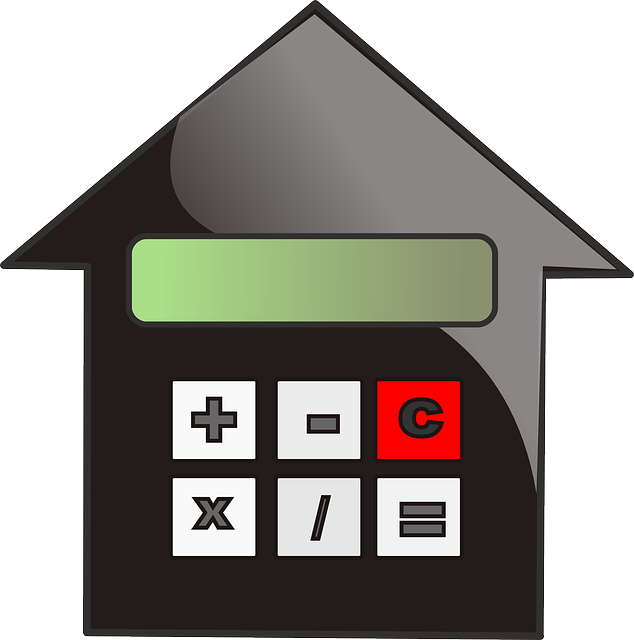When Will Home Prices Be Affordable Again?
The housing market refers to the buying and selling of residential properties, including single-family homes, apartments, and condominiums. Housing markets are heavily influenced by economic conditions, such as employment rates, interest rates, and consumer confidence. The U.S. housing market is a significant sector of the real estate market and plays a crucial role in the overall economy. The real estate market in the USA has experienced significant fluctuations in recent years, with periods of growth followed by periods of decline. Factors such as population growth, urbanization, and changing demographics can affect the demand for housing and influence the performance of the real estate market. Despite these fluctuations, the housing market remains an essential component of the economy and a significant investment opportunity for many individuals.
The housing market, including housing markets across the United States, continues to be a prominent and dynamic sector within the real estate market. In recent years, the U.S. housing market has experienced notable fluctuations and trends, shaping the landscape for buyers, sellers, and investors. Factors such as supply and demand, economic conditions, and government policies heavily influence the state of the housing market. The real estate market in the USA remains a crucial indicator of the overall economic health and stability of the nation, with its performance impacting various industries and individuals alike.
It is April yet the spring home buying season has bloomed and that could turn out as an absolute failure. Mortgage rates increased 15 basis points from March to April versus a slump in sales in March. The median home sales price was down year-over-year for the second consecutive month, an encouraging sign for home buyers. Tensions remain high in supply thereby causing many people, particularly first-time buyers – to have difficulty with affordable home ownership – to buy.

Buyer’s Market Definition
Buyers markets happen when the market has more properties on the market for sale than the active shoppers, giving them the advantage. Homes for sale will usually be available in a few months after an offer from the right buyer comes. Typically fewer buyers, the seller will be inclined to offer concessions the buyer demands like a new roof, or cover closing cost, to gain the desired buyer. In buyer’s markets the price will drop because of the low demand for housing on certain markets.
Housing Market Forecast for May 2023
When it comes time to start buying homes, buyers and sellers remain in contention. Persistently high interest rates and home prices have dragged many potential homebuyers away. The Fed is expected to increase the central banks’ interest rate by one percent by the third or fourth quarter each, a move that follows most housing analysts’ expectations. The Federal Reserve said it could suspend rates indefinitely if inflation remains low. The Fed’s interest rate increase will affect long-term mortgages like fixed-rate 30-year homes in some instances.
The Housing Market in the United States has always been a subject of interest and concern for many individuals. Home prices, housing market crashes, mortgage rates, income, and home values are just some of the key factors that contribute to the dynamics of this complex market. In this essay, we will explore various aspects of the housing market in the U.S., including its history, current trends, and potential future developments. Additionally, we will examine the impact of factors such as interest rates, housing supply and demand, affordability, and the effects of past economic crises on home affordability.

The housing market encompasses the buying and selling of residential properties, as well as the factors that influence their prices and overall market conditions. It plays a crucial role in the overall health of the economy, as it directly affects consumer spending, construction activity, and employment in related industries.
Home prices have always been a focal point in the housing market. They reflect the value of properties and can fluctuate based on various factors, such as location, amenities, and market conditions. Rapid increases in home prices can lead to concerns about housing affordability and potential market bubbles.
The housing market crash of 2008, also known as the Great Recession, was a pivotal event that significantly impacted the U.S. housing market. It was triggered by a combination of factors, including risky lending practices, subprime mortgages, and the subsequent collapse of the housing bubble. This crash led to a steep decline in home prices, widespread foreclosures, and a severe contraction in the real estate market.
Mortgage rates are a critical factor in the housing market. They directly impact the affordability of homes and influence the demand for housing. Lower mortgage rates generally stimulate home buying activity, while higher rates can deter potential buyers.
The real estate market is highly sensitive to changes in home values. Fluctuations in home prices can influence buyer behavior, as they may choose to wait for prices to decrease before entering the market or sell their properties if they anticipate a downturn.
The National Association of Realtors (NAR) is a prominent organization that provides valuable data and insights into the U.S. housing market. Their reports and analyses help real estate professionals and the general public understand market trends, home sales, and other relevant statistics.
Housing demand is a crucial driver of the housing market. It is influenced by factors such as population growth, economic growth, and individual financial situations. During periods of economic expansion and population growth, the demand for housing tends to increase.
Rising interest rates can have a significant impact on the housing market. When interest rates rise, monthly mortgage payments increase, which reduces housing affordability for potential buyers. This can lead to a slowdown in home sales and a shift toward a more competitive market.
Housing supply refers to the number of homes available for sale in a given market. In a buyer’s market, where housing supply exceeds demand, buyers have more negotiating power, and home prices may decline. Conversely, in a seller’s market, housing supply is limited, leading to bidding wars and higher prices.
Housing affordability is a critical concern for many individuals and families. It depends on factors such as income levels, home prices, and mortgage rates. High housing prices relative to income can create challenges for prospective homebuyers, particularly in expensive metro areas.
The foreclosure crisis during the Great Recession had a profound impact on the U.S. housing market. Foreclosure filings surged, and many homeowners faced the risk of losing their properties. This crisis highlighted the importance of responsible lending practices and the potential consequences of an overheated housing market.
Economic and population growth can drive housing demand and influence home prices. As the economy expands and job opportunities increase, more individuals and families enter the housing market.
Experts say prices could fall further
In many cases, prices will drop into the high single digit range, Dietz said. The home price decline could cause a little trouble for economic reasons as well. Nevertheless, this correction for home builders will no longer resemble that of the total collapse in real estate prices during the Great Recession. Those in high-demand regions like California could face an even bigger price drop. The Midwest will however see little change in house prices. Analysts predict that national prices will stay flat this quarter.

Will There Be a Lot of Foreclosures in 2023?
Though foreclosure activity still above levels prior to the rise of the pandemic, the foreclosure rate has climbed since September 20, 2021. Compared with the previous quarter, the foreclosure rate climbed 6% in the first quarter of 2022. February foreclosures topped last year’s average 10%.
Will the Housing Market Crash This Year?
The continued shortage of homes and the rising inventory of home inventory are contributing largely to a decline in the housing market. The CoreLogic Case-Shiller Home Price Index posted its second consecutive decline on Thursday and remained at 1.3%. However the appreciation in the value of goods has decreased in recent months compared to last years. In the coming month, prices are expected to be largely localized, and the data may be more volatile.
Factors That Cause Market Changes
In fact, a buyer may not be in an economic or financial situation but it can be an investment decision. Because the value and affordability of homes are so high it’s usually rare for a home to see a snap judgement like stocks do. Real estate transactions tend to slow down as much as possible.
Local Housing Market vs. National Housing Market
Real property is highly localized, as the wide variety of property value, economic status and law vary by state. Los Angeles’ housing markets operate much different than those in St. Louis. This means you must look at your local housing market to determine what factors are most important to your property investment. In terms of the national housing markets, one could see overarching patterns occurring across the country in most markets in many parts of the United States.

Will rising interest rates lower home prices?
Historical rises in mortgages often result in lower house prices. Rising mortgage rates are usually associated with lower property values. But since the interest rate is rising rapidly in 2022 it could also push house prices downward further into 2023. Home prices tend to change depending on the supply and demand of goods.
When Should I Buy a Home in 2023?
Buying a property — anywhere — is very personal. It can be very expensive to buy a house and to be in the best financial position possible before jumping right into this market. Get an affordable monthly mortgage by checking out our mortgage calculator. This is not a good strategy for home buying. In anticipation that the market will drop tomorrow, prospective house buyers are expected to be disappointed by this.

Tips for Buying in Today’s Housing Market
Although prices fall, it can be difficult to find a home in the region metro area you want a home in. Moving on to lower-priced housing markets may be an ideal solution for first homeowners or people with very low budgets. The United States does this all the time. Get the ducks all together at once – review your credit history, get the required documents, shop several loan providers and improve your rating. Similarly when you find your dream home, you can act quickly.
What are some of the top housing markets and what is driving the growth?
San Francisco, California
High demand fueled by technology industry
Limited housing supply leading to rising prices
Strong job market and economic growth
Austin, Texas
Rapid population growth and strong job market
Relatively affordable housing compared to coastal cities
Vibrant cultural scene and quality of life
Seattle, Washington
Booming tech sector and major corporate headquarters
Limited housing supply and rising home prices
Beautiful natural surroundings and amenities
Denver, Colorado
Growing population and strong job market
High demand for outdoor activities and quality of life
Rising home prices and limited inventory
Nashville, Tennessee
Increasing population and strong economic growth
Thriving music and entertainment industry
Relatively affordable housing compared to other major cities
Raleigh, North Carolina
Growing tech and research sectors
Affordable housing market and relatively low cost of living
Excellent educational institutions and quality of life
Charlotte, North Carolina
Robust job market and corporate headquarters
Affordable housing and lower cost of living
Well-regarded schools and amenities
Dallas, Texas
Diverse economy with strong job growth
Affordable housing market and low taxes
Cultural attractions and recreational opportunities
Atlanta, Georgia
Major transportation hub and diverse economy
Affordable housing market and strong job growth
Rich history, cultural institutions, and entertainment options
Phoenix, Arizona
Rapid population growth and strong economic expansion
Affordable housing market and lower cost of living
Sunny weather and outdoor activities
Mortgage Rates

Mortgage rates play a significant role in shaping the dynamics of the housing market. Fluctuations in mortgage rates can have a substantial impact on homebuyers’ purchasing power and affordability, ultimately influencing the demand for housing.
When mortgage rates are low, it generally stimulates homebuying activity. Lower rates result in lower monthly mortgage payments, making homeownership more accessible and attractive to potential buyers. This increased demand can lead to a surge in home sales and a competitive market where multiple buyers may bid on the same property, potentially driving up prices.
Conversely, when mortgage rates rise, the affordability of homes decreases. Higher rates mean higher monthly mortgage payments, which can deter some potential buyers from entering the market or reduce the amount they can afford to borrow. As a result, the demand for housing may soften, leading to a slowdown in home sales and potentially a decline in home prices.
The impact of mortgage rates on the housing market is not limited to homebuyers. Higher rates can also affect existing homeowners who may be considering refinancing their mortgages. When rates rise, the incentive to refinance diminishes, as the potential savings from a lower interest rate decrease. This can impact the overall level of housing activity and contribute to a shift in market conditions.
It is important to note that mortgage rates are influenced by various factors, including the overall state of the economy, inflation, and monetary policy decisions made by the Federal Reserve. These factors can cause mortgage rates to fluctuate over time, impacting the affordability of housing and the behavior of buyers.
In recent years, the housing market has experienced historically low mortgage rates, which have contributed to robust demand and rising home prices in many areas. However, it is important to recognize that mortgage rates are subject to change and can rise in response to economic factors, such as inflationary pressures or shifts in monetary policy.
As buyers consider entering the housing market, it is crucial for them to carefully assess their financial situation and affordability in relation to mortgage rates. Working closely with lenders and real estate professionals can provide valuable guidance and help potential buyers navigate the impact of mortgage rates on their homebuying journey.
What to expect next from the housing market?
Predicting the future of the housing market is a challenging task as it is influenced by various economic, demographic, and policy factors. While I cannot provide a definitive forecast, I can discuss some general trends and factors that may shape the next housing market.

Interest Rates: One key factor to monitor is the trajectory of interest rates. If interest rates rise significantly, it could dampen housing demand and affordability. Conversely, if rates remain relatively low, it may continue to stimulate homebuying activity.
Housing Supply and Demand: The balance between housing supply and demand will continue to be crucial. Areas with limited housing supply relative to demand are likely to experience continued price growth and competition among buyers. However, an increase in housing construction and inventory could alleviate supply constraints in some regions.
Affordability Challenges: Housing affordability will remain an important consideration. In many markets, rising home prices have outpaced wage growth, making it harder for some individuals and families to afford homeownership. Policies aimed at promoting affordable housing and increasing access to homeownership may influence the market.
Economic and Demographic Factors: Economic growth and population trends play a significant role in the housing market. Areas with robust job markets, population growth, and favorable economic conditions tend to experience stronger housing demand and price appreciation.
Remote Work and Migration Patterns: The COVID-19 pandemic has accelerated remote work trends and prompted some individuals and families to reassess their housing needs. This has led to increased demand for homes in suburban or rural areas, where individuals can have more space and flexibility. Remote work and migration patterns may continue to impact housing market dynamics.
Policy and Regulation: Government policies and regulations can have a significant impact on the housing market. Changes in mortgage lending rules, zoning regulations, tax policies, and government initiatives to promote affordable housing can shape the market conditions and affect buyer behavior.
Economic Cycles and Market Corrections: The housing market is cyclical, and periods of expansion are often followed by periods of adjustment. While it is challenging to predict the timing and magnitude of market corrections, it is essential to be mindful that downturns can occur. Monitoring economic indicators and market trends can help identify potential risks.
It is important to note that housing market conditions can vary widely by region and even within local markets. Consulting with local real estate experts, monitoring market trends and data, and conducting thorough research are essential for making informed decisions in the housing market.
